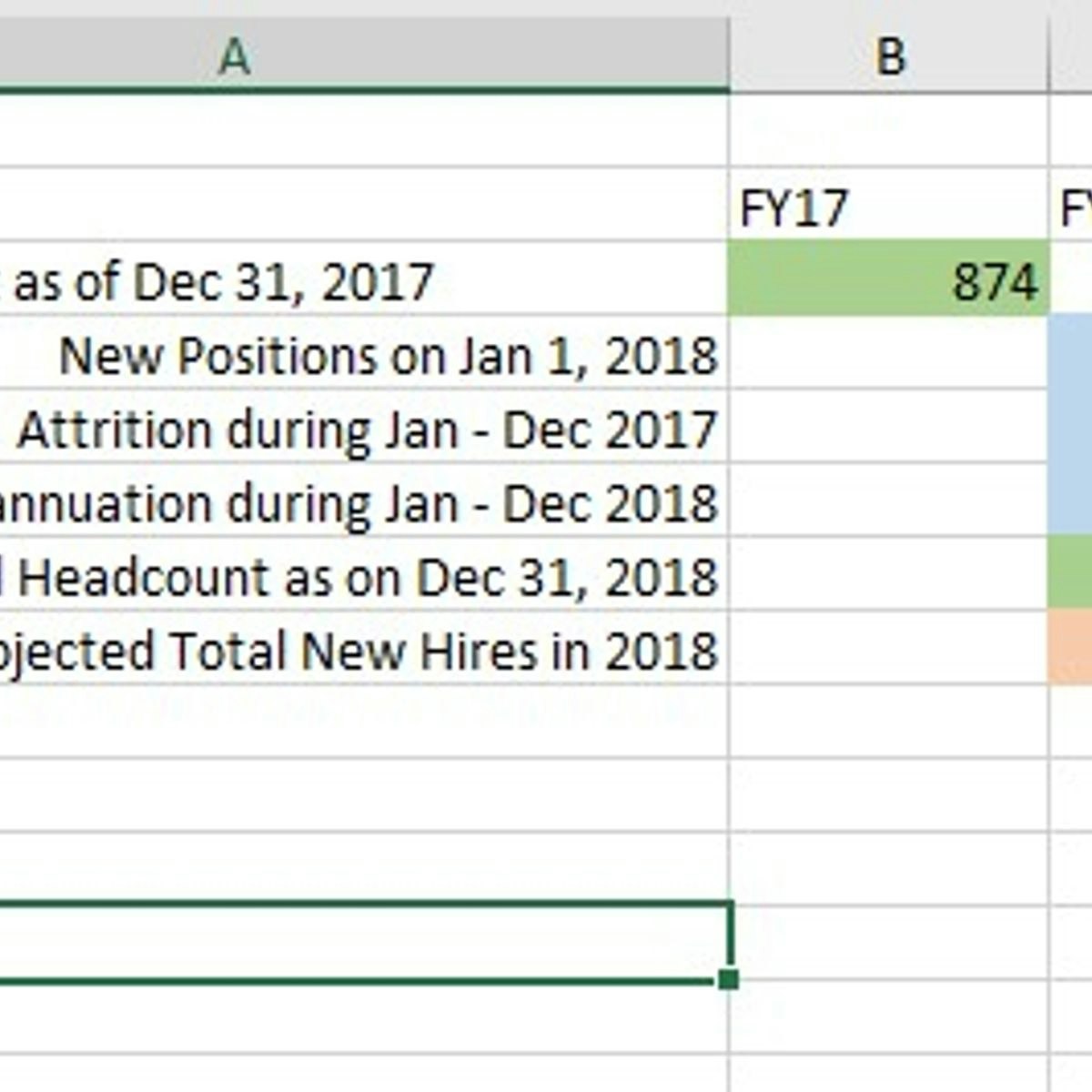Recruiter
A Comprehensive Guide to the Recruiter Career Path
A recruiter acts as a crucial link between companies seeking talent and individuals searching for job opportunities. Their primary role is to identify, attract, and hire qualified candidates to fill open positions within an organization or for client companies. Recruiters are essentially matchmakers in the professional world, striving to find the best fit for both the employer and the potential employee.
Working as a recruiter can be dynamic and rewarding. You might find the fast-paced nature of matching candidates to roles exciting, especially when you successfully place someone in their dream job. The role often involves significant interaction with people from diverse backgrounds, making strong communication and relationship-building skills paramount. Furthermore, the direct impact recruiters have on an organization's success through talent acquisition can be deeply satisfying.
Introduction to Recruiting
Defining the Recruiter's Role
At its core, recruiting is about talent acquisition. Recruiters manage the entire hiring process, from understanding the requirements of a role to sourcing candidates, screening resumes, conducting initial interviews, and facilitating the offer process. They act as advocates for the company, promoting its culture and opportunities, while also serving as a guide for candidates navigating the application journey.
The purpose extends beyond simply filling vacancies. Recruiters play a strategic role in workforce planning, helping organizations anticipate future talent needs and build pipelines of potential candidates. They contribute to shaping the workforce composition and ensuring the company has the human capital required to achieve its business objectives.
Effective recruiting requires a blend of sales, marketing, and human resources skills. It involves persuading candidates to consider opportunities, marketing the company as an employer of choice, and understanding the nuances of employment law and HR best practices. Success often hinges on a recruiter's ability to build trust and rapport with both hiring managers and candidates.
Internal vs. Agency Recruiters
Recruiters typically work in one of two main settings: internal (or corporate) roles or for recruitment agencies. Internal recruiters are employed directly by a company and focus exclusively on hiring for that organization. They work closely with hiring managers within the company to understand specific needs and ensure new hires align with the company culture and long-term goals.
Agency recruiters, on the other hand, work for third-party firms that companies hire to help fill vacancies. These recruiters often work with multiple clients across various industries, managing a diverse portfolio of job openings. Agency roles can be fast-paced and sales-oriented, often involving business development to secure new clients alongside candidate sourcing and placement.
The transition between these roles is common. Agency experience can provide broad exposure and strong sourcing skills, while internal roles offer deeper insight into a single organization's strategy and culture. Both paths offer unique challenges and rewards within the recruiting field.
Agency roles sometimes differentiate between "180 recruitment," focusing solely on candidate sourcing, and "360 recruitment," managing both candidate and client relationships.
A Brief History of Recruiting
The recruiting profession has evolved significantly over time. Early forms of recruitment were often informal, relying heavily on personal networks and referrals. As businesses grew and labor markets became more complex, particularly after World War II, the need for dedicated personnel to manage hiring processes became apparent, leading to the emergence of the human resources field.
The rise of technology, especially the internet and job boards in the late 20th and early 21st centuries, revolutionized recruitment. It expanded the reach for both employers and job seekers, making sourcing more efficient but also increasing the volume of applications recruiters had to manage. This era saw the development of Applicant Tracking Systems (ATS) to help handle the influx.
More recently, social media platforms like LinkedIn, data analytics, and artificial intelligence (AI) have further transformed the field. Modern recruiting emphasizes strategic talent acquisition, employer branding, candidate experience, and data-driven decision-making, moving far beyond the purely transactional nature of early recruitment practices.
Industries Employing Recruiters
Recruiters are employed across nearly every industry, as the need for talent is universal. However, demand can be particularly high in sectors experiencing rapid growth or specialized skill shortages. Technology, healthcare, finance, and professional services are often prominent employers of recruiters due to constant innovation and competition for skilled professionals.
The U.S. Bureau of Labor Statistics (BLS) projects that employment for human resources specialists, which includes recruiters, will grow faster than the average for all occupations through 2033, indicating sustained demand across the economy. Emerging sectors like renewable energy and biotechnology also rely heavily on recruiters to find specialized talent.
Government agencies and non-profit organizations also employ recruiters to manage their hiring processes, often focusing on mission-driven roles and navigating specific public sector regulations. Regardless of the industry, the fundamental goal remains the same: connecting the right people with the right opportunities.
OpenCourser offers resources for those interested in Humanities or Social Sciences backgrounds, which can provide valuable foundations for understanding people and organizations.
Key Responsibilities of a Recruiter
Sourcing and Screening Candidates
Sourcing involves actively seeking out potential candidates for open roles. This can include posting job descriptions on job boards, searching databases, utilizing social media platforms like LinkedIn Recruiter, attending career fairs, and leveraging employee referrals. Effective sourcing requires understanding where target candidates are likely to be found and crafting compelling outreach messages.
Screening is the process of reviewing applications and resumes to identify candidates who meet the basic qualifications for a position. Recruiters assess skills, experience, and education against the job requirements. This often involves using Applicant Tracking Systems (ATS) to manage the volume of applications and initial filtering.
Following initial screening, recruiters often conduct brief phone or video interviews to further assess a candidate's suitability, interest level, and basic qualifications before presenting them to the hiring manager. This step helps ensure that only the most relevant candidates move forward in the process.
These introductory courses cover the fundamentals of finding and evaluating candidates.
Understanding the intricacies of job applications and interviews is central to this role.
Collaboration with Hiring Managers
A strong partnership between recruiters and hiring managers is essential for successful recruitment. Recruiters work closely with managers to understand the specific needs of the role, the team dynamics, and the key competencies required for success. This involves intake meetings to define the job description and ideal candidate profile.
Throughout the hiring process, recruiters provide updates on the candidate pool, share feedback from screenings, and coordinate interview schedules. They act as advisors, offering market insights and guidance on candidate assessment strategies. Clear communication and mutual understanding ensure the process runs smoothly and efficiently.
Ultimately, the hiring manager makes the final hiring decision, but the recruiter plays a critical role in presenting qualified candidates and facilitating the decision-making process. This collaboration ensures alignment between talent acquisition efforts and departmental needs.
This course focuses on improving the recruiter-hiring manager relationship for better outcomes.
Negotiating Job Offers and Salary Discussions
Once a final candidate is selected, the recruiter is typically responsible for extending the job offer. This involves communicating the terms of employment, including salary, benefits, start date, and any contingencies. It requires careful handling to ensure the candidate feels valued and understands the offer details clearly.
Salary negotiation is often a key part of this stage. Recruiters need to balance the company's compensation structure and budget with the candidate's expectations and market value. Researching salary trends using resources like the U.S. Bureau of Labor Statistics or industry reports is crucial for informed discussions.
Successful negotiation requires strong communication, empathy, and problem-solving skills. The goal is to reach a mutually agreeable package that secures the desired candidate while adhering to company policies and ensuring internal equity. Managing this process effectively is vital for closing the hire.
Employer Branding and Candidate Experience Management
Employer branding involves shaping the company's image as a desirable place to work. Recruiters play a key role in conveying this brand message through job descriptions, career pages, social media interactions, and communication with candidates. A strong employer brand helps attract top talent.
Candidate experience refers to the overall perception a job seeker has of a company's hiring process. Recruiters are the primary point of contact and significantly influence this experience through timely communication, transparency, and respectful interactions. A positive candidate experience can enhance the employer brand, even if the candidate is not hired.
Managing candidate experience involves ensuring a smooth application process, providing clear updates, offering constructive feedback when possible, and treating all applicants professionally. In today's competitive market, where candidates often share their experiences online, prioritizing this aspect is crucial for attracting future talent and maintaining a positive company reputation.
The Role of a Recruiter in the Modern Hiring Process
Impact of Automation and AI Tools
Artificial intelligence (AI) and automation are significantly reshaping the recruitment landscape. Tools powered by AI can automate repetitive tasks such as resume screening, candidate sourcing, interview scheduling, and initial communications via chatbots. This frees up recruiters to focus on more strategic aspects like relationship building and complex decision-making.
AI can enhance efficiency and potentially reduce bias by focusing on skills and qualifications rather than demographic information, although careful oversight is needed to prevent algorithmic bias. According to research highlighted by SHRM, many employers report time savings and accelerated hiring processes using AI. However, concerns remain about AI making the process too impersonal or introducing new forms of bias if not managed properly.
The trend for 2025 suggests increased AI usage, but with a growing understanding that AI complements rather than replaces human recruiters. Its value lies in augmenting human capabilities, particularly in handling volume and administrative tasks, while human insight remains crucial for nuanced evaluation and strategic decisions.
This course explores the intersection of AI and HR practices.
Shift Toward Data-Driven Decision-Making
Modern recruitment increasingly relies on data analytics to inform strategies and measure effectiveness. Recruiters use data to track key metrics such as time-to-fill, cost-per-hire, source effectiveness, candidate pipeline health, and offer acceptance rates. Analyzing this data helps identify bottlenecks and areas for improvement.
Data-driven insights enable more strategic workforce planning and talent sourcing. By understanding market trends, competitor activities, and internal skill gaps through data, recruiters can make more informed decisions about where to find talent and how to attract them effectively. This approach moves recruitment beyond intuition towards evidence-based practices.
Tools like Applicant Tracking Systems (ATS) and specialized HR analytics platforms provide the infrastructure for collecting and analyzing recruitment data. Proficiency in interpreting this data and translating insights into actionable strategies is becoming a valuable skill for recruiters aiming to demonstrate ROI and align talent acquisition with business goals.
Role in Diversity, Equity, and Inclusion (DEI) Initiatives
Recruiters are on the front lines of implementing Diversity, Equity, and Inclusion (DEI) initiatives within organizations. They play a crucial role in building diverse candidate pipelines, ensuring fair and unbiased screening processes, and promoting an inclusive employer brand. Many companies recognize DEI as a competitive advantage and vital for innovation.
Efforts include writing inclusive job descriptions, sourcing from diverse talent pools, implementing blind resume reviews, standardizing interview processes, and training hiring managers on unconscious bias. According to data compiled by Built In, companies with diverse leadership often financially outperform their peers, highlighting the business case for DEI.
Despite progress, achieving true diversity and inclusion remains a challenge. Recruiters must navigate potential biases in processes and technologies, champion equitable practices, and advocate for a workplace culture where all employees feel valued and belong. This responsibility requires ongoing learning and commitment.
These courses address understanding and mitigating bias in the workplace.
These resources delve deeper into building diverse and inclusive workplaces.
Recruitment and Broader Talent Management
Recruitment is increasingly viewed not just as a standalone function but as an integral part of a broader talent management strategy. Talent management encompasses the entire employee lifecycle, including onboarding, performance management, learning and development, succession planning, and retention.
Recruiters contribute to this broader strategy by ensuring that the talent brought into the organization aligns with long-term goals and cultural values. Collaboration with other HR functions, such as learning and development or compensation and benefits, helps create a cohesive employee experience from the first contact through ongoing employment.
Understanding how recruitment impacts employee engagement, retention, and overall organizational capability allows recruiters to be more strategic partners. This holistic view helps ensure that hiring efforts support sustainable growth and a thriving workforce, rather than just filling immediate openings.
These courses explore the connection between recruitment and overall talent strategy.
Formal Education Pathways
Relevant Bachelor's Degrees
While a specific degree is not always mandatory, many recruiters hold a bachelor's degree. Common fields of study include Human Resources, Business Administration, Psychology, Communications, and Sociology. These programs provide foundational knowledge in areas relevant to the role, such as organizational behavior, business principles, communication strategies, and understanding human motivation.
A Human Resources degree offers direct training in HR practices, employment law, compensation, and talent management. Business degrees provide a broader understanding of organizational functions, strategy, and finance, which is helpful for aligning recruitment with business goals. Psychology or Sociology degrees can enhance understanding of individual and group behavior, valuable in assessing candidates and team dynamics.
Regardless of the specific major, coursework developing strong communication, critical thinking, problem-solving, and interpersonal skills is highly beneficial. Practical experience through internships often complements formal education, providing real-world exposure to the recruitment field.
Professional Certifications
Professional certifications can enhance a recruiter's credibility and demonstrate specialized knowledge. Prominent organizations like the Society for Human Resource Management (SHRM) and the HR Certification Institute (HRCI) offer well-recognized credentials. SHRM offers the SHRM-CP (Certified Professional) and SHRM-SCP (Senior Certified Professional), which cover broad HR competencies.
These certifications typically require a combination of education and professional experience, followed by passing an exam. According to SHRM, certified professionals report higher credibility and earnings potential. Certifications often require ongoing professional development for recertification, ensuring holders stay current with industry trends and best practices.
Other specialized certifications exist, such as those focused on talent acquisition specifically or technical recruiting. While not always required, certifications can be valuable for career advancement and demonstrating commitment to the profession, especially for those transitioning into HR or recruiting roles.
Consider these resources for foundational HR knowledge often covered in certification exams.
Graduate Programs in Talent Acquisition
For those seeking advanced knowledge or leadership roles, a master's degree specializing in Human Resource Management or Talent Acquisition can be beneficial. These programs delve deeper into strategic workforce planning, advanced recruitment techniques, HR analytics, employment law, and organizational leadership.
Graduate studies often involve research projects, case studies, and opportunities to network with experienced professionals and faculty. This advanced education can provide a competitive edge, particularly for roles requiring strategic oversight or specialized expertise in areas like executive search or global talent management.
While a master's degree is not typically an entry-level requirement, it can accelerate career progression and open doors to higher-level management positions within HR and talent acquisition departments. It signifies a deeper commitment to the field and a higher level of strategic understanding.
The Role of Internships
Internships provide invaluable hands-on experience for aspiring recruiters. They offer exposure to the day-to-day tasks of recruiting, such as sourcing candidates, screening resumes, scheduling interviews, and using recruitment software like ATS platforms. This practical experience complements academic learning.
Internships allow students or career changers to build professional networks within the HR and recruiting community. Working alongside experienced recruiters provides mentorship opportunities and insights into industry practices. Successful internships can often lead to full-time job offers upon graduation or completion.
Even short-term internships demonstrate initiative and a genuine interest in the field, making candidates more attractive to employers. They provide a low-risk way to explore whether recruiting is the right career fit while developing essential skills and building a relevant resume.
Skill Development Through Online Learning
Essential Technical Skills
Modern recruiters rely on various technologies. Proficiency in Applicant Tracking Systems (ATS) is crucial for managing candidate pipelines, tracking applications, and ensuring compliance. Familiarity with platforms like LinkedIn Recruiter is vital for sourcing passive candidates and building professional networks.
Other technical skills include using job boards effectively, leveraging data analytics tools for reporting recruitment metrics, and potentially using AI-powered tools for screening or scheduling. Comfort with virtual communication platforms (like Zoom or Microsoft Teams) for interviews and meetings is also essential, especially with the rise of remote and hybrid work models.
Online courses offer accessible ways to learn specific software or platforms used in recruiting. Developing these technical competencies ensures recruiters can operate efficiently and leverage technology to enhance their effectiveness in finding and hiring talent.
These courses cover skills related to common recruitment tools and platforms.
You can browse software tools courses on OpenCourser to find training relevant to specific platforms.
Soft Skills Training
Beyond technical proficiency, soft skills are paramount for recruiters. Strong communication skills—both written and verbal—are essential for interacting with candidates, hiring managers, and colleagues. Active listening helps in understanding needs and building rapport.
Negotiation skills are critical for handling job offers and salary discussions effectively. Persuasion and influence help in attracting candidates and managing stakeholder expectations. Empathy and interpersonal skills are vital for creating a positive candidate experience and navigating sensitive conversations.
Time management and organizational skills are necessary to handle multiple job requisitions and deadlines simultaneously. Resilience is important for navigating the inevitable ups and downs of the recruitment cycle, such as dealing with rejected offers or challenging searches. Online courses focused on communication, negotiation, emotional intelligence, and time management can significantly bolster these crucial soft skills.
These courses focus on developing essential soft skills for recruiters.
Books can also offer deep insights into communication and influence.
Project-Based Learning for Resume Building
For those new to recruiting or seeking to transition, gaining practical experience can be challenging. Project-based learning, often available through online courses or volunteer opportunities, allows individuals to apply recruitment principles in a hands-on manner. This could involve simulated recruitment drives, developing sourcing strategies for hypothetical roles, or creating sample job descriptions and interview guides.
Completing such projects provides tangible examples of skills and initiative that can be highlighted on a resume and discussed during interviews. It demonstrates practical application of knowledge, even without formal work experience in a recruiting role. For instance, participating in a project focused on improving a company's candidate communication process can showcase relevant skills.
Platforms like OpenCourser feature project-based courses where learners complete specific tasks, such as creating resumes or managing hiring processes using specific tools. These projects serve as valuable portfolio pieces and talking points, helping bridge the gap between learning and practical application.
Consider these project-based courses to gain hands-on experience.
Integrating Online Learning with Formal Pathways
Online learning can effectively supplement formal education pathways like bachelor's degrees or certifications. Students can use online courses to gain proficiency in specific software (like ATS platforms) not covered in depth academically, or to develop specialized skills like technical recruiting or diversity sourcing.
Working professionals can use online courses for continuous professional development, staying updated on the latest trends, technologies (like AI in recruitment), and best practices. This is particularly useful for maintaining certifications that require ongoing learning credits. Online learning offers flexibility, allowing individuals to learn at their own pace alongside work or other commitments.
Combining formal education with targeted online learning creates a well-rounded skill set. It demonstrates a proactive approach to skill development and adaptability, qualities highly valued in the dynamic field of recruitment. OpenCourser's extensive catalog allows learners to easily find courses that fill specific knowledge gaps or align with career goals.
For those developing their careers, OpenCourser offers a dedicated section.
Explore Career Development courses for broader professional growth.
Career Progression and Specialization
Entry-Level Roles
Most individuals enter the recruiting field in entry-level positions such as Recruitment Coordinator, Talent Sourcer, or Junior Recruiter. These roles typically focus on supporting senior recruiters and learning the fundamentals of the hiring process. Responsibilities often include scheduling interviews, posting jobs, managing candidate communications, maintaining the ATS, and initial resume screening.
Talent Sourcers specialize in proactively identifying and engaging potential candidates, often focusing on passive talent pools using tools like LinkedIn and professional databases. Recruitment Coordinators handle the administrative aspects of the hiring process, ensuring a smooth workflow and positive candidate experience.
These entry-level roles provide essential foundational experience and exposure to various facets of recruitment. They offer opportunities to develop core skills like communication, organization, and familiarity with recruitment technologies, paving the way for advancement to full-cycle recruiter positions.
These courses are suitable for those starting their recruitment journey.
Mid-Career Paths and Specialization
After gaining foundational experience, recruiters typically progress to roles handling the full recruitment lifecycle (often called "360 recruitment" in agencies). They manage the process end-to-end, from sourcing and screening to interviewing, offer negotiation, and collaboration with hiring managers. At this stage, many recruiters begin to specialize.
Specializations can be industry-focused (e.g., tech, healthcare, finance recruiter) or role-focused (e.g., technical recruiter, sales recruiter, executive search). Technical recruiters, for example, require a deeper understanding of specific technologies and skill sets to effectively source and assess candidates for roles like software engineers or data scientists.
Executive search (or headhunting) involves recruiting for senior-level and C-suite positions. This requires discretion, strong networking abilities, and a deep understanding of organizational leadership needs. Mid-career recruiters might also move into areas like university relations, employer branding, or diversity recruitment.
These roles represent potential paths after gaining initial experience.
Leadership Opportunities
Experienced recruiters with a proven track record and strong leadership skills can advance into management roles. Positions like Recruiting Manager, Talent Acquisition Lead, or Talent Acquisition Director involve overseeing a team of recruiters, developing recruitment strategies, managing budgets, and collaborating with senior leadership on workforce planning.
At higher levels, individuals might move into roles like Head of Talent Acquisition or Vice President of Human Resources, where they shape the overall talent strategy for the organization. These roles require strategic thinking, strong business acumen, and the ability to align talent initiatives with organizational goals.
Leadership paths often require a blend of deep recruitment expertise, people management skills, and strategic vision. Advanced degrees or certifications like the SHRM-SCP can be beneficial for reaching these senior positions.
These roles represent leadership positions within HR and Talent Acquisition.
Freelance and Contract Recruiting
The rise of the gig economy and fluctuating hiring needs have increased opportunities for freelance or contract recruiters. These professionals work on a project basis, often supporting companies during periods of high growth, specific hiring campaigns, or to fill temporary gaps in the internal recruitment team.
Contract recruiting offers flexibility and variety, allowing recruiters to work with different companies and industries. It requires strong self-management skills, adaptability, and the ability to quickly understand new client needs and integrate into different company cultures. Freelancers often build their business through networking and reputation.
This path can be appealing for experienced recruiters seeking more autonomy or those specializing in niche areas where project-based demand is high. However, it also involves managing administrative tasks like invoicing and business development, and income can be less predictable than full-time employment.
Ethical Considerations in Recruiting
Mitigating Bias in Candidate Screening
Unconscious bias can inadvertently influence recruitment decisions, leading to unfair outcomes and less diverse teams. Recruiters have an ethical responsibility to actively mitigate bias throughout the hiring process. This includes being aware of common biases (like affinity bias or confirmation bias) and implementing strategies to counteract them.
Techniques include standardizing interview questions, using structured evaluation rubrics, implementing blind resume reviews (removing names and identifying details), and ensuring diverse interview panels. Training for recruiters and hiring managers on unconscious bias is also crucial.
AI tools can potentially help reduce bias by focusing on objective criteria, but they must be carefully vetted and monitored to ensure they don't introduce or perpetuate algorithmic bias. Ethical recruiting prioritizes fairness and merit, ensuring all candidates are evaluated based on their qualifications and potential.
These courses offer insights into recognizing and addressing unconscious bias.
Data Privacy Regulations
Recruiters handle sensitive personal information from candidates, making adherence to data privacy regulations paramount. Laws like the General Data Protection Regulation (GDPR) in Europe and the California Consumer Privacy Act (CCPA) in the US impose strict rules on how personal data can be collected, processed, stored, and shared.
Ethical recruiters must ensure they have explicit consent from candidates to collect and use their data, clearly communicate how the data will be used, and provide mechanisms for candidates to access or delete their information. Secure data storage and handling practices are essential to prevent breaches.
Staying informed about evolving data privacy laws and company policies is crucial. Violations can result Mapped to substantial fines and reputational damage. Ethical practice involves treating candidate data with respect and transparency, upholding their privacy rights throughout the recruitment process.
Transparency in Communication
Maintaining transparency in communication with candidates is an ethical cornerstone of recruiting. This involves providing clear information about the role, the hiring process timeline, and the company culture. Setting realistic expectations helps build trust and ensures a positive candidate experience, even for those not selected.
Candidates appreciate timely updates on their application status. While providing detailed feedback to every applicant may not always be feasible, clear communication about next steps and decisions demonstrates respect for their time and effort. Ghosting candidates (ceasing communication without notice) is widely considered unethical and damages the employer brand.
Transparency also extends to interactions with hiring managers, ensuring honest feedback about candidates and market conditions. Ethical recruiters prioritize clear, honest, and respectful communication with all stakeholders involved in the hiring process.
Handling Counteroffers and Candidate Poaching
Recruiters may encounter ethical dilemmas when dealing with counteroffers or sourcing candidates already employed elsewhere (poaching). When a candidate receives a counteroffer from their current employer, the recruiter's role is to provide guidance based on the candidate's best interests and career goals, rather than solely focusing on closing the placement.
Regarding poaching, while sourcing employed candidates is a standard practice, ethical considerations involve respecting non-solicitation agreements and avoiding deceptive practices. Building relationships based on trust and providing genuine career opportunities is key, rather than pressuring candidates or misrepresenting roles.
Maintaining professionalism and integrity in these situations is crucial. Ethical recruiters prioritize long-term relationships and reputation over short-term gains, acting in a manner that respects candidates, clients, and competitors.
Global Demand for Recruiters
Regional Variations in Hiring Practices
Hiring practices and expectations can vary significantly across different countries and cultures. Recruiters working in global roles or sourcing international talent need to be aware of these differences. Variations can exist in resume formats, interview styles, communication norms, compensation structures, and employment laws.
For example, expectations around salary negotiations, acceptable interview questions, and the importance placed on personal connections can differ widely. Understanding cultural nuances helps recruiters build rapport with international candidates and navigate cross-border hiring processes effectively.
Cultural sensitivity and adaptability are crucial for global recruiters. Researching local market practices and potentially partnering with local experts can ensure compliance and cultural appropriateness, leading to more successful international placements.
Impact of Remote Work on Global Talent Pools
The rise of remote work has significantly expanded talent pools, allowing companies to hire individuals from virtually anywhere in the world. This presents opportunities for recruiters to access diverse skills and perspectives previously limited by geography. However, it also introduces complexities.
Recruiters must navigate varying time zones, remote onboarding challenges, and ensuring compliance with labor laws and tax regulations in different jurisdictions where remote employees reside. Managing a globally distributed workforce requires new strategies for communication, team building, and performance management.
Despite the challenges, the trend towards remote and hybrid work continues, making global talent acquisition an increasingly important area. Recruiters skilled in navigating these complexities are valuable assets for companies seeking to leverage worldwide talent.
These courses address managing remote and hybrid teams.
Emerging Markets and Recruitment Growth
Rapid economic growth in certain emerging markets often fuels significant demand for recruiters. As companies expand into new regions or local businesses scale up, the need for skilled professionals to manage talent acquisition increases. Recruiters with knowledge of these specific markets can find ample opportunities.
Working in emerging markets may involve unique challenges, such as navigating less established recruitment infrastructure, understanding local labor dynamics, and adapting to different cultural contexts. However, it also offers the chance to contribute to significant growth and development.
Understanding the specific industries driving growth in these markets (e.g., technology in Southeast Asia, manufacturing in parts of Latin America) helps recruiters tailor their strategies. Language skills and local market knowledge are often highly advantageous for success in these regions.
Visa Sponsorship Complexities
Hiring international talent often involves navigating complex visa and immigration processes. Recruiters involved in global hiring must understand the requirements for work visas, sponsorship obligations, and compliance with immigration laws in both the hiring country and the candidate's home country.
Visa processes can be lengthy, costly, and subject to frequent changes in regulations. Recruiters need to work closely with legal counsel or immigration specialists to ensure compliance and manage candidate expectations regarding timelines and potential hurdles.
Providing clear guidance and support to international candidates throughout the visa application process is crucial for a positive experience. Missteps can lead to delays, legal issues, and loss of valuable talent, highlighting the importance of diligence and expertise in this area.
Challenges Facing Modern Recruiters
Candidate Ghosting and Market Saturation
Candidate ghosting—when applicants or candidates abruptly cease communication without explanation—has become a significant challenge. This can happen at any stage, from application withdrawal to failing to show up for interviews or even the first day of work. It disrupts hiring timelines and wastes recruiter effort.
Market saturation, particularly in certain industries or roles, can lead to an overwhelming volume of applications, many from unqualified candidates. Sifting through numerous applications to find suitable candidates is time-consuming. Furthermore, high competition for top talent means recruiters must work harder to attract and retain candidate interest.
Addressing these challenges requires persistent follow-up, clear communication to keep candidates engaged, efficient screening processes, and building strong relationships to foster commitment. Setting clear expectations and ensuring a positive candidate experience can help mitigate ghosting to some extent.
Balancing Speed vs. Quality in Hires
Recruiters often face pressure to fill open positions quickly to meet business needs. However, rushing the process can lead to poor hiring decisions, resulting in higher turnover and associated costs. Balancing the need for speed with the imperative to hire high-quality candidates who are a good long-term fit is a constant challenge.
This requires efficient yet thorough processes. Leveraging technology for initial screening can save time, allowing recruiters to focus on in-depth assessments of shortlisted candidates. Clear alignment with hiring managers on essential qualifications versus desirable traits helps prioritize effectively.
Ultimately, focusing solely on speed can be detrimental. A strategic approach that optimizes the process without sacrificing due diligence is necessary. Measuring quality-of-hire metrics alongside time-to-fill helps maintain focus on finding the right talent, not just filling seats quickly.
This book addresses the critical aspect of hiring effectively.
Adapting to Generational Workforce Expectations
Today's workforce comprises multiple generations (e.g., Baby Boomers, Gen X, Millennials, Gen Z), each with potentially different expectations regarding work culture, communication styles, benefits, and career development. Recruiters need to understand and adapt their strategies to attract and engage talent across these diverse groups.
Younger generations, for instance, often prioritize flexibility, purpose-driven work, continuous feedback, and opportunities for growth. Older generations might place more value on stability, traditional benefits, and clear hierarchies. Tailoring communication and highlighting relevant aspects of the employer value proposition is key.
Creating an inclusive environment that respects and leverages the strengths of a multi-generational workforce is essential. Recruiters contribute by promoting flexibility, diverse benefits packages, and development opportunities that appeal across generational lines, ensuring the company attracts and retains talent from all age groups.
Economic Cycles and Hiring Freezes
Recruitment activity is often closely tied to economic cycles. During economic downturns or periods of uncertainty, companies may implement hiring freezes or significantly reduce recruitment budgets. This can create job insecurity for recruiters, particularly those in agency roles or focused on industries sensitive to economic fluctuations.
During hiring freezes, recruiters may shift focus to internal mobility, employer branding, talent pipelining for future needs, or supporting other HR functions. Adaptability and resilience are crucial during these periods. Building a diverse skill set within HR can provide more stability.
Conversely, during economic booms, recruiters face intense pressure to fill numerous roles quickly in a competitive market. Understanding how economic trends impact hiring demand and being able to adapt strategies accordingly is an important aspect of the recruiting profession.
Frequently Asked Questions
Is a degree mandatory to become a recruiter?
A bachelor's degree is often preferred but not always mandatory, especially for entry-level roles or in certain industries. Many successful recruiters enter the field from backgrounds in sales, customer service, or administration, leveraging transferable skills like communication and relationship building.
However, a degree in fields like HR, Business, or Psychology can provide a strong foundation and may be required for advancement into management positions. Relevant experience, demonstrated skills, and potentially certifications can sometimes substitute for a formal degree.
Ultimately, requirements vary by employer and role. Practical experience gained through internships or related work is highly valued. Online courses can also help build necessary skills and knowledge for those without a traditional degree path.
How does recruiter compensation work?
Recruiter compensation structures vary. Internal (corporate) recruiters typically receive a base salary plus potential bonuses tied to individual or company performance. According to data from the U.S. Bureau of Labor Statistics, the median annual wage for HR specialists was $74,360 in May 2023, though this varies widely by experience, industry, and location.
Agency recruiters often work on a commission-based model, receiving a base salary plus a percentage of the salary for the candidates they place. This structure offers potential for high earnings based on performance but can also mean less income stability, especially during economic downturns.
Factors influencing compensation include experience level, specialization (e.g., executive or technical recruiting often commands higher pay), industry, geographic location, and the size and type of organization. Negotiation skills also play a role in determining starting salary and potential raises.
Can recruiters transition to HR generalist roles?
Yes, transitioning from recruiting to broader HR generalist roles is a common career path. Recruiting provides a strong foundation in talent acquisition, which is a key function within HR. Experience in sourcing, interviewing, and onboarding gives recruiters valuable insights into employee relations and organizational needs.
To make the transition, recruiters often need to develop knowledge and skills in other HR areas, such as compensation and benefits, employee relations, performance management, and HR compliance. Pursuing additional education, certifications (like the SHRM-CP), or taking on cross-functional projects can facilitate this move.
Many skills developed in recruiting, such as communication, problem-solving, and understanding business needs, are directly transferable to generalist HR roles. This pathway allows individuals to broaden their impact within the human resources field.
What industries have the highest recruiter demand?
Demand for recruiters often mirrors growth and talent needs across different sectors. Industries characterized by rapid technological change, high growth rates, or specialized skill requirements typically have strong demand. These often include technology, healthcare, professional and business services, and finance.
According to recent BLS data, sectors like health care and professional, scientific, and technical services have shown significant job growth, suggesting continued need for recruiters in these areas. Leisure and hospitality also show demand as they recover and grow.
However, recruiters are needed across almost all industries, including manufacturing, retail, education, and government. Demand can fluctuate based on economic conditions and specific industry trends, making adaptability a key trait for recruiters.
How to handle ethical dilemmas in candidate placement?
Ethical dilemmas can arise, such as pressure to fill a role quickly with a suboptimal candidate, misrepresenting a job or company culture, or dealing with conflicts of interest. Handling these requires a strong ethical framework, prioritizing integrity and fairness.
Key principles include transparency with both candidates and hiring managers, ensuring confidentiality of sensitive information, avoiding discriminatory practices, and acting in the best interests of all parties involved. Consulting company policies, ethical guidelines from professional organizations like SHRM, or seeking advice from mentors or supervisors can help navigate complex situations.
Ultimately, building a reputation for ethical conduct is crucial for long-term success and trust in the recruiting profession. Prioritizing ethical considerations over short-term placement goals upholds professional standards and fosters positive relationships.
Impact of AI on long-term career viability?
AI is automating many administrative and repetitive tasks in recruitment, leading to concerns about job displacement. However, most experts believe AI will augment, rather than replace, human recruiters. AI excels at tasks like screening large volumes of resumes or scheduling interviews, freeing up recruiters for more strategic and relationship-focused activities.
The role is evolving towards strategic talent advisory, candidate relationship management, complex negotiation, and ensuring fairness and inclusivity – areas where human judgment, empathy, and strategic thinking remain essential. Recruiters who adapt by developing skills in data analysis, AI tool management, and strategic consultation are likely to thrive.
Continuous learning and upskilling will be crucial for long-term viability. Embracing AI as a tool to enhance efficiency and focusing on the uniquely human aspects of recruitment can position recruiters for continued relevance and success in the future.
Embarking on a career as a recruiter offers a dynamic path with opportunities to impact organizational success and individual careers. It requires a blend of interpersonal skills, strategic thinking, and adaptability. While challenges exist, particularly in navigating technological shifts and market fluctuations, the core human element of connecting talent with opportunity remains central. With dedication, continuous learning, and a commitment to ethical practices, a career in recruitment can be both rewarding and fulfilling. Explore resources on OpenCourser to build the skills needed for this exciting field.




































